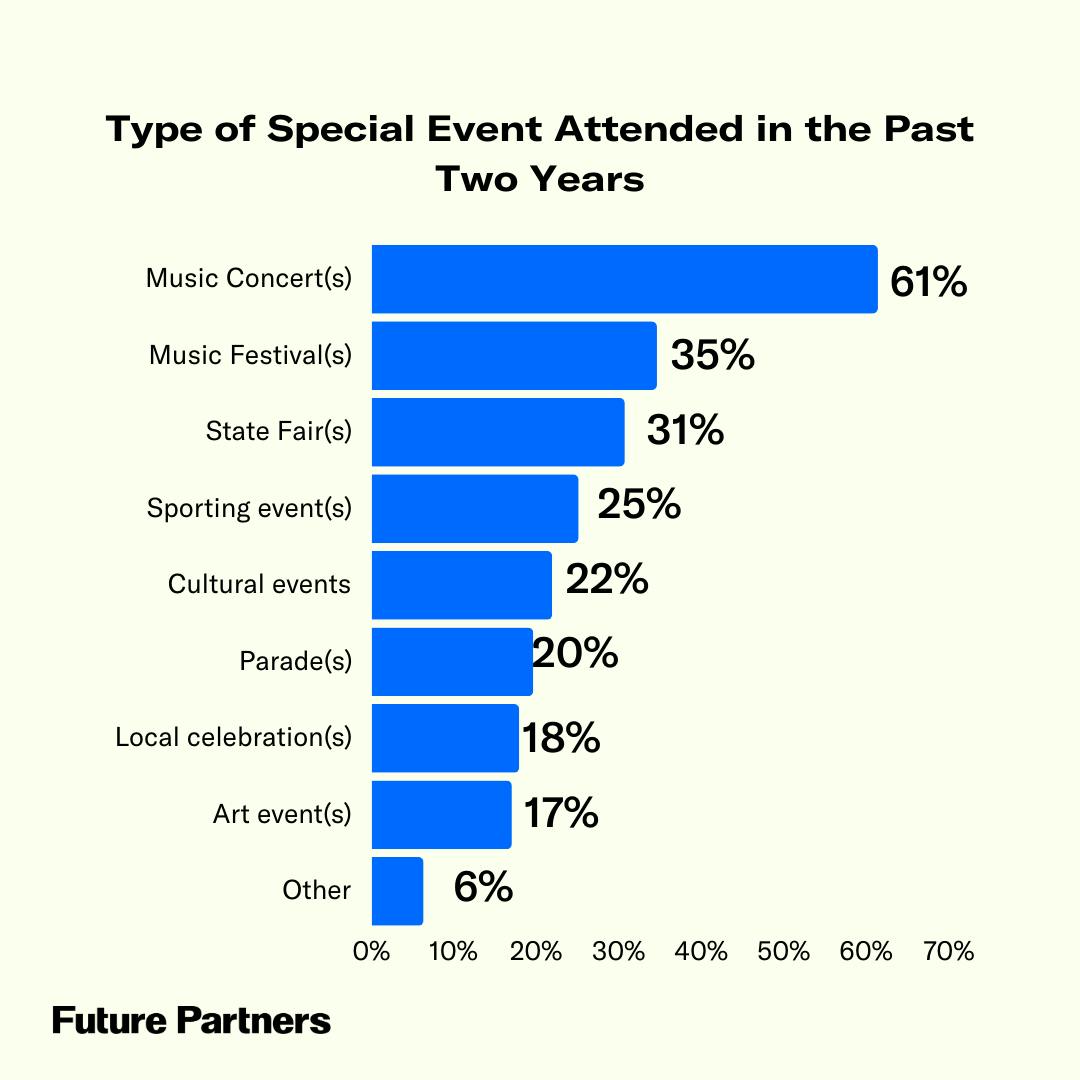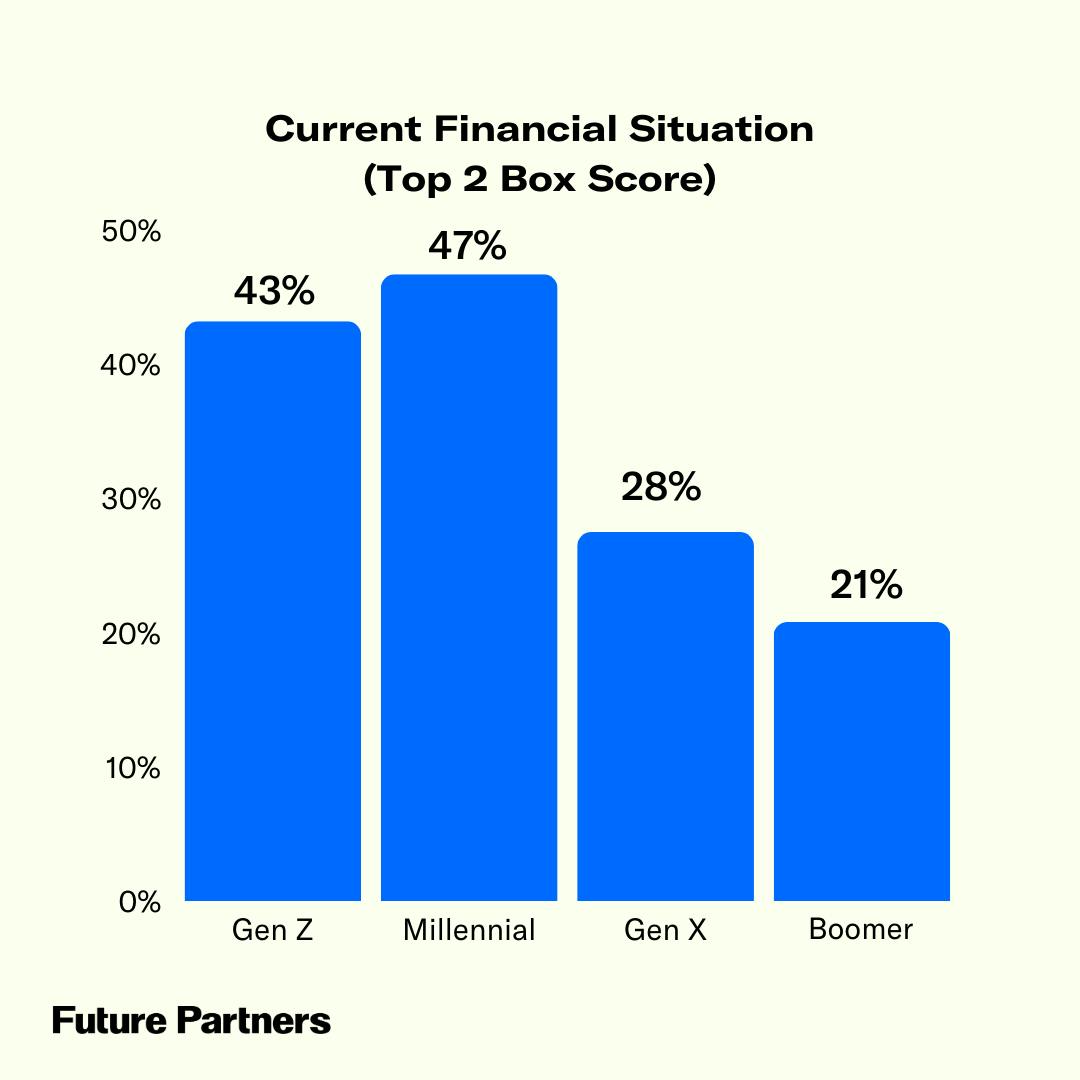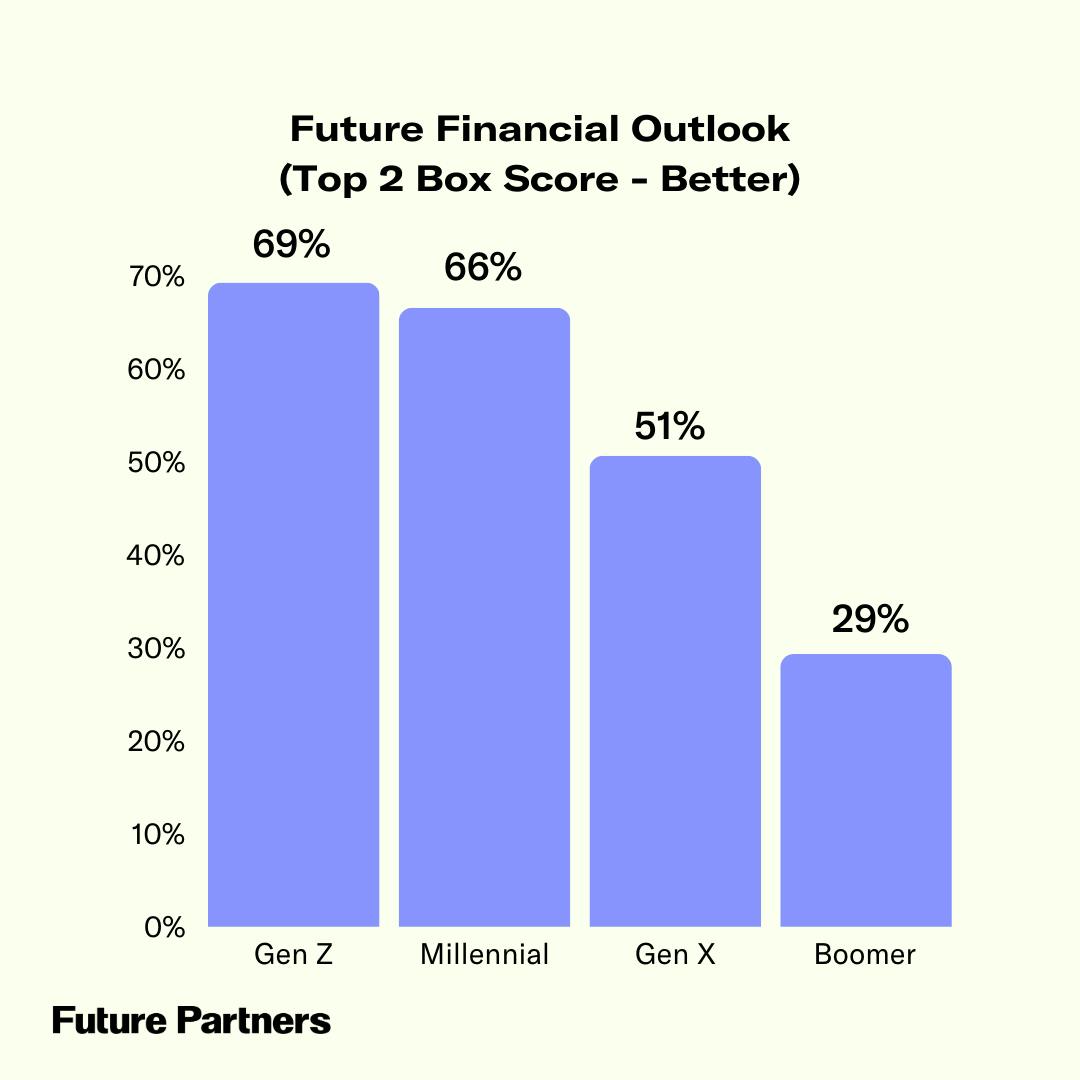December 2023 data from The State of the American Traveler Study reveals a compelling narrative about Gen Z’s travel habits. Since they are armed with the least number of available days for leisure travel, we’ve explored how they maximize every opportunity, what sets them apart, and their own unique approach to travel. This past month, Future Partners featured a panel of Gen Z travelers on our latest livestream showcasing exactly what kind of travel they are seeking, and how they go about deciding what they want to do in-market.
Let’s set the stage. It may not come as a surprise that, compared to older generations, Gen Z has the least number of days available for leisure travel in 2024.

But intriguingly, they seem to be the most likely to maximize on those days. When asked if they expect to travel more or less for leisure in 2024 compared to 2023, over one-third of Gen Z travelers said they expect to travel more this year, just edging out Millennials by a fraction of a percent and significantly outpacing Gen Xers and Boomers.

Younger Generations Are Willing to Travel to Attend Events
In particular, Gen Z has an established tendency to travel to attend a special event more than other generations (though they are neck and neck with Millennials in this category as well). Nearly two-thirds of Gen Z travelers said they have traveled 50+ miles from home to attend a special event in the past two years, compared to only about half of Gen Xers and fewer than four in ten Boomers.


Of those Gen Z travelers who said they’d traveled to attend a special event in the past 2 years, by far the majority of them said they did so to attend a music concert (61.4%), followed distantly by music festivals (34.6%). Perhaps this comes as no surprise given 2023’s literally economy-boosting concert tours from Taylor Swift and Beyonce.

And while they have the lowest leisure travel budgets for the coming year at $3,868 (compared to $4,252 among Millennials, $4,212 among Gen Xers, and $5,347 among Boomers), they have a significantly rosier view of their current financial situation compared to older generations, with the exception of Millennials.

And even better news, their financial outlook is also the most optimistic compared to all other generations, indicating that Gen Z is not only the most eager generation when it comes to doing more travel in the next year, but they are also more confident financially about the coming year compared to other cohorts.

Gen Z’S Desired Travel Experiences
During our webinar panel, we gathered a focus group of Gen Z travelers to dig a little more into why they travel and what types of experiences they are looking for. This generation, it turns out, is all about connection and shared experiences. Their favorite aspects of travel are connecting with the local culture of a destination, experiencing the place with the people they are traveling with, and creating new memories.
Gen Z travelers are all about the intangible when it comes to what they value from travel – rather than accumulating more “stuff”, they crave creating experiences and memories with the people they care about. And that often means going to places no one they know has gone before. In a world where famous landmarks and attractions (one panelist mentioned the Louvre) are well documented on social media, these travelers are interested in trying places that aren’t necessarily as popular.
Markedly, these travelers said they would be open to exploring small-town America and discovering the unique history of a small town’s main street, for example. In fact, Michigan and Connecticut were named by the panel as two states that have done a great job of marketing this unique small-town aspect of their destination.
The Role of Technology for Gen Z Travelers
And as the first generation that has really grown up with social media and is coming of age during the rise of AI, we wanted to understand how they are actually using these two digital tools for travel. Panelists pointed out that social media definitely influences where they decide to go, and often aids them in being more spontaneous about what they do and where they go. One panelist said they dislike having everything planned out to the last detail, and will often turn to Google Reviews to decide what to do on the spot, citing that resources’ reliability for top reviews.
When it comes to AI, most of the panelists have not used AI for travel, but the one Gen Z traveler who has experience using AI tools said she used it to find out “what are the 5 places I must visit, what restaurants should I go to, and what should I pay attention to”. This yielded a great amount of detail, but she nevertheless used three different tools (ChatGPT, Bing AI, and Bard) in case the information was outdated.
The takeaway? AI was great for gathering a lot of information and condensing it into one source, which then served as a jumping point to see what to learn more about via social media. While this is one Gen Z traveler’s experience, it does point to one way that AI and social media are potentially symbiotic travel resources for this digital native audience.
We know it’s not always enough to look at a generation so broadly, so in 2024 we’ve included all 50 states for custom analysis in addition to many cities and locations across the USA. If you are interested in learning more about The State of the American Traveler we would love to help.
Check out The State of the American Traveler to learn more!










